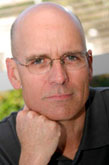 In the debate about the current release of documents by WikiLeaks founder and editor-in-chief Mr Julian Assange, a professor of public ethics at Charles Sturt University (CSU) argues that the ‘right’ to disseminate information is never an unlimited one and always calls for the exercise of responsible judgement.
In the debate about the current release of documents by WikiLeaks founder and editor-in-chief Mr Julian Assange, a professor of public ethics at Charles Sturt University (CSU) argues that the ‘right’ to disseminate information is never an unlimited one and always calls for the exercise of responsible judgement.“The ‘right to know’ must always be assessed against other rights,” says Professor Clive Hamilton, who holds the CSU Vice-Chancellor’s Chair of Public Ethics at the Centre for Applied Philosophy and Public Ethics (CAPPE) in Canberra .
“There are sometimes very good reasons for information to be kept secret. For example, last year an Australian newspaper had information about a planned raid by police to arrest some terror suspects. It decided to withhold the information from the public so as not to damage the public interest.
“In the case of the WikiLeaks documents, the possible ramifications of publication of each document must be weighed up before a decision to release is made. Yet WikiLeaks as an organisation, and Mr Assange as its editor-in-chief, seem to believe they have no responsibility for the consequences of their acts.
“Even so, under pressure and concerned about public support, WikiLeaks itself seems to have accepted that it acted irresponsibly in releasing some of the ‘Iraq documents’ earlier in the year and is now editing out some information, such as removing the names of people who might be killed for their dealings with the United States. As an organisation, WikiLeaks gives no indication that it has the expert judgement to make good decisions that pass ethical tests.
“Contrast the way WikiLeaks has been willing to simply make available, without due care, whatever it is sent, with the case of the British weapons inspector Mr David Kelly. Mr Kelly had secret information that proved that the British Government lied about its reasons for going to war in Iraq. He weighed up the public interest and made a decision to reveal the information to a trusted source in the media. He was right to do so, and in my view, his actions were heroic, and not just because he took his own life as a result of the subsequent pressure.
“The point is that David Kelly weighed up the implications and took responsibility for the consequences of his actions, whereas Mr Assange seems to be acting on the basis of an anarchistic political view that is opposed to all secrecy, as if all secrets kept by governments are a conspiracy against the people. There is no doubt that governments are excessively secretive and their secrecy often works against the public interest, but to claim that all secrets are anti-democratic, and to justify one’s acts on the basis of meaningless slogans such as ‘information wants to be free’, is naïve and dangerous. It does not follow that, because some secrets are unjustified, all secrets are unjustified.
“In a post-ideological era, where being radical has become identified with an unthinking libertarianism that crosses the old left-right divide, the WikiLeaks saga tells us something important about the inability of many Internet-obsessed younger political activists to think through a position based on competing rights and principles.





Social
Explore the world of social